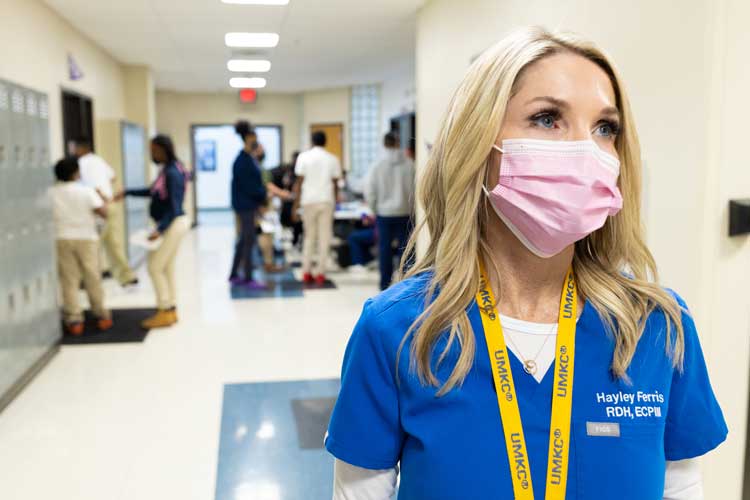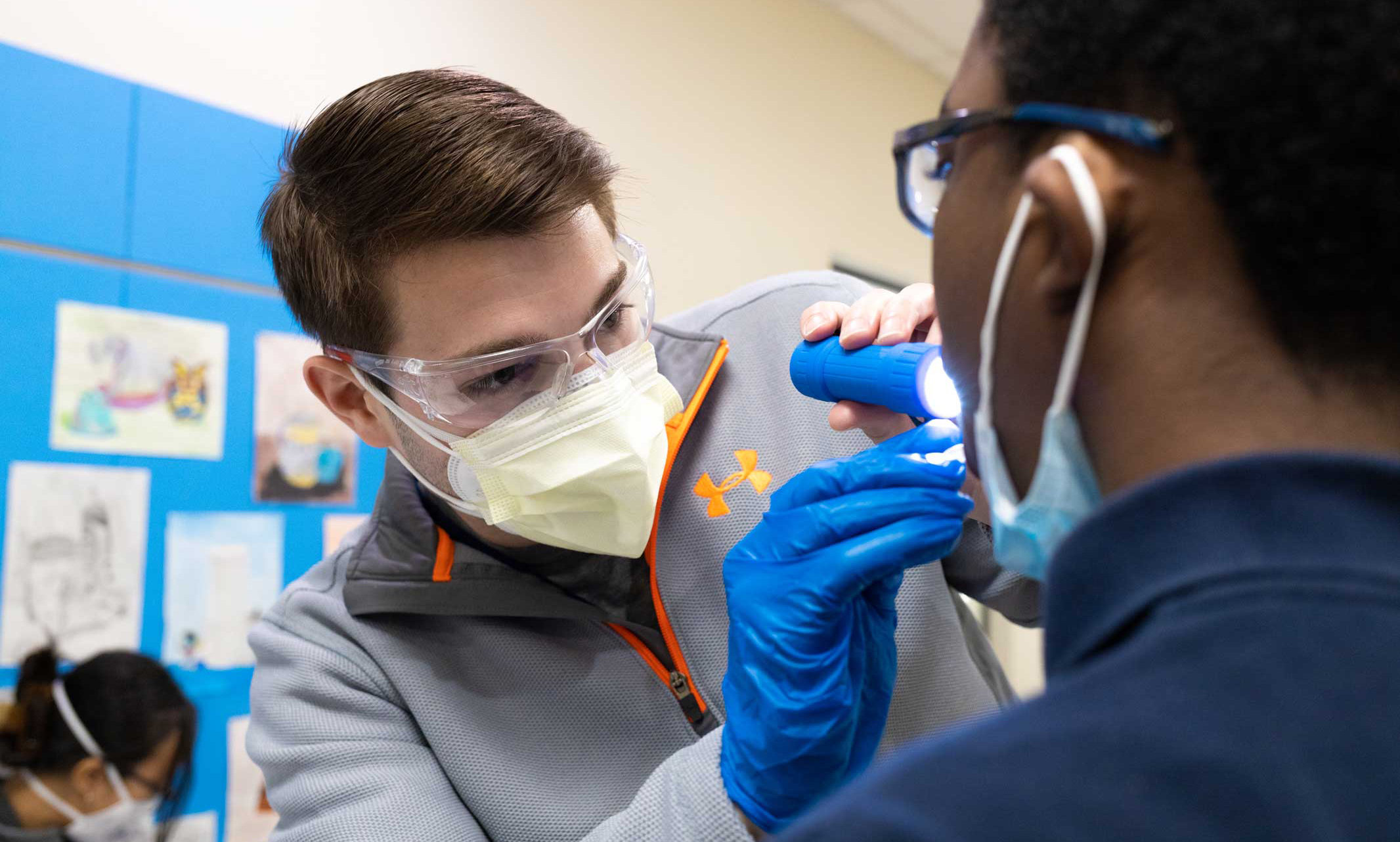The UMKC School of Dentistry closed out February’s Children’s Dental Health Month strong, screening about 900 students at the University Academy, a Kansas City school serving K-12 students. More than 30 dental and hygiene students volunteered to provide care along with four faculty from the school.
The screenings are part of the lead up to reopening the dental clinic housed within University Academy. Opened in 2012, the dental clinic was temporarily shut down due to the pandemic. School of Dentistry faculty and students that provide care at the clinic say they are looking forward to reopening the clinic. Hayley Ferris, an instructor who works with dental hygiene students in the clinic, said the screening event played a critical role in the getting the clinic up and running again.
“This all-school screening will give us a baseline of where the population sits right now,” she said. “That way, we have an idea of what the needs are for these students before we go in with our preventative care.”

Dr. Megan Wendland, associate professor in the Department of Dental Public Health and Behavioral Science at the UMKC School of Dentistry, said additional funding from the state of Missouri was critical to the reopening of the dental clinic at University Academy.
“Our department is all about preventative care and preventing dental caries (cavities),” Wendland said. “The state had funding from the CDC to promote dental sealant programs and they said they would absolutely help with this.”
Ferris is returning to UMKC within the public health department to help manage the University Academy clinic. She helped established a similar clinic in the Olathe, Kansas, School District with Dr. Melanie Simmer-Beck, a professor and chair of the department. That program ran from 2007-2014.
The clinic at the University Academy is part of the dental school’s mission to provide health care in-house to students attending the school. UMKC will provide the oral health care in partnership with Children’s Mercy Kansas City, which manages the health clinic within the school. The dental clinic will be staffed by a UMKC dental hygienist and hygiene students who will provide preventive care, assessments, cleanings, fluoride, varnish and sealants.
“Right now, tooth decay is the number one childhood illness that causes kids to miss school,” Ferris said. “It’s extremely important that they have these resources available right there in the building so parents don’t have to take time off of work and kids don’t have to take time off from school.”
The experience is also beneficial to the participating third-year dental students, exposing them to a population they don’t get as much experience with, at least not 900 children at once.
“This is a great opportunity for them to see children in that mixed phase of having both permanent and primary teeth,” Ferris said. “And with pandemic restrictions, there aren’t as many of these outreach opportunities available to them so we filled up our sign ups in a matter of minutes.”
Children’s Dental Health Month is an initiative by the American Dental Association that promotes the importance of good oral health to children, their teachers and parents. The emphasis for this year’s campaign was on dental sealants for children. That is a welcomed focus for Wendland.
Wendland’s research focuses on disparities in health care and improving health outcomes in diverse populations. Sealants are an area she and the school focus on as a first line-of-defense in achieving those improved oral health outcomes. Sealants consist of a thin plastic coating that is placed on the back teeth, where a majority of cavities form. Wendland the sealants can prevent 80 percent of cavities.
“At University Academy, as well as our mobile clinic at Gladstone Elementary, we’re part of a big push to raise the national average for sealants,” said Wendland. “That average nationally is about 37 percent with the goal to push it above 40 percent. However, Missouri is at about 19 percent, which is obviously far and away from where we want to be.”
Wendland came to UMKC from Chicago where she was a clinician at a Federally Qualified Health Center. While there she experienced the scope of what a fully comprehensive program is capable of. The Chicago Department of Public Health partnered with the public school district to provide a universal sealant program to all K-12 schools.
“That program would see more than 120,000 kids a year,” Wendland said. “Currently, there isn’t anyone doing that kind of broad sealant program in Kansas City but having come from that model, ideally that’s what I would want to see.”
Assessing 900 children at the University Academy was a good start.

